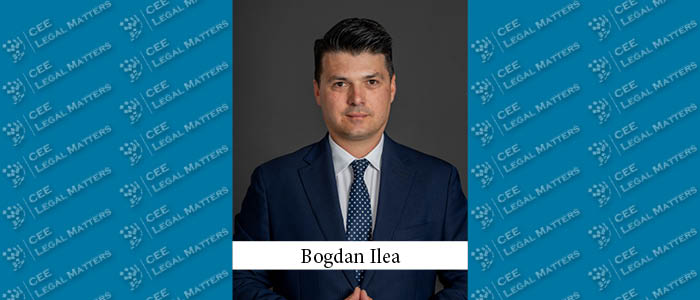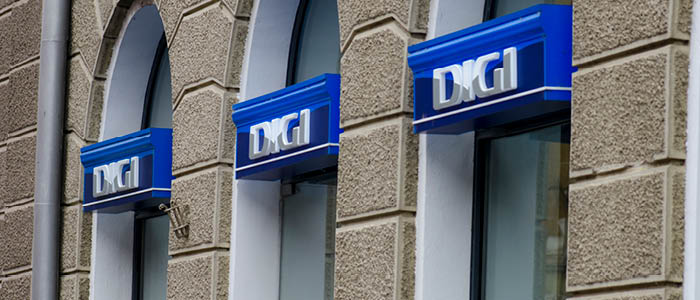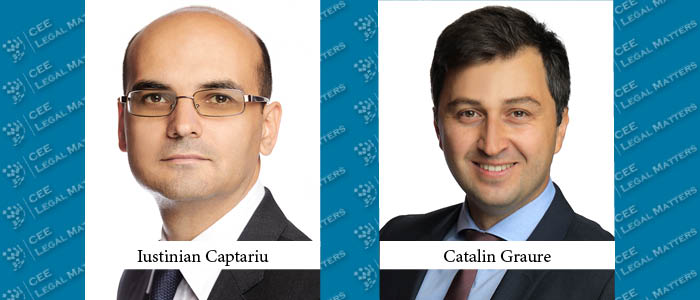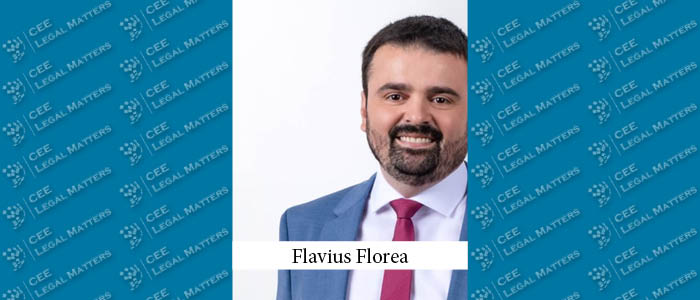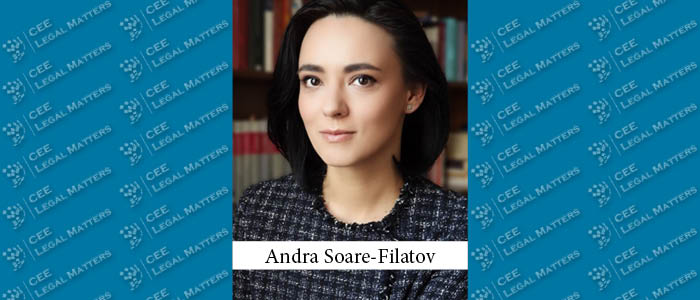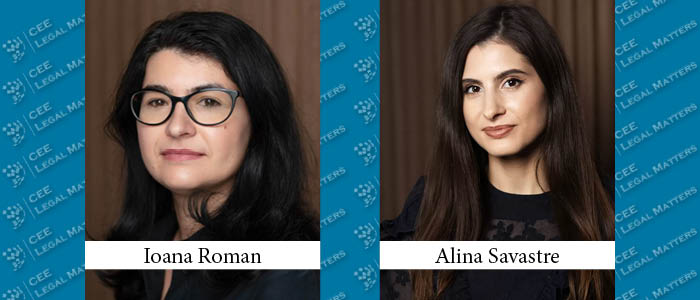ACI Partners Managing Partner Igor Odobescu, Nagy es Trocsanyi Founding Partner Peter Nagy, Kinstellar Partner Radovan Grbovic, Law Office Vujacic Partner Sasa Vujacic, and Tuca Zbarcea & Asociatii Partner Robert Rosu discuss recent litigation trends across CEE, driven by the impact of economic shifts and regulatory changes in their jurisdictions.
Bogdan Ilea Joins Popescu & Asociatii as Head Regulatory, Government & Public Affairs
Bogdan Ilea has joined Popescu & Asociatii as Partner and the firm's new Head of Regulatory, Government & Public Affairs practice.
Filip & Company Advises Arobs on Capital Increase
Filip & Company has advised Arobs Transilvania Software on the share capital increase operation through which it has raised EUR 28.7 million.
Filip & Company Advises Digi Group Spain on Contracts with Telefonica Moviles Espana
Filip & Company has advised Digi Group’s Spanish subsidiaries on a national roaming contract and a network and spectrum sharing contract with Telefonica Moviles Espana.
Romania Strengthens Screening of EU Investments
Further to the December 2023 amendments to the Romanian regime for screening inbound direct investments (that we previously covered here), which formally included EU investors within the scope of screening, the Romanian Parliament has adopted a new law (the “New Law”) to further strengthen the approach towards EU investors.
RPTR and Wolf Theiss Advise on Vectr Holdings' Acquisition of The Landmark Office Building
RTPR has advised Vectr Holdings on the indirect acquisition of the company that owns The Landmark office building in Bucharest from funds managed by Revetas Capital and affiliates of Cerberus Capital Management. Wolf Theiss advised Revetas Capital and Cerberus.
Preparing for the Future: Romania’s National AI Strategy and the EU AI Act
Last week was full of exciting news in relation to AI in Romania. First, the long-awaited AI Act was published in the EU’s Official Journal on 12 July, becoming Regulation (EU) 2024/1689. The AI Act is an essential part of the EU’s extensive digital strategy, alongside the Digital Services Act and the Digital Markets Act. The EU digital strategy aims to establish a thorough regulatory framework that tackles the diverse challenges and opportunities of the digital economy. Secondly, the Romanian Government approved the National Strategy regarding Artificial Intelligence (“AI Strategy”) on 11 July. The AI Strategy aims to contribute to Romania’s adoption of digital technologies in the economy and society, while respecting human rights and promoting excellence and trust in AI.
Andra Soare-Filatov Becomes Partner at LDDP
Leaua Damcali Deaconu Paunescu has promoted former Managing Associate Andra Soare-Filatov to Partner.
DLA Piper and RTPR Advise on Believe's Partnership with Global Records
DLA Piper has advised Believe on a partnership with Global Records. RTPR advised Global Records.
Energy Efficiency and Climate Neutrality in Europe’s Real Estate Sector
On 12 April 2024, the Council of the European Union adopted the revised text of Directive 2010/31/EU on the energy performance of buildings (the “Revised Directive”). The Revised Directive was published in the Official Journal of the European Union on 8 May 2024 and Member States will have to transpose it into national legislation within 2 years of its entry into force (i.e. 28 May 2024).
Kinstellar Advises Agrotex on Sale to Promat Comimpex
Kinstellar has advised the majority shareholders of Agrotex on the sale of a significant stake to Promat Comimpex. PNSA reportedly advised Promat Comimpex.
Schoenherr Advises on Resalta’s Sale of Resalta BV Netherlands to Aggreko
Schoenherr, working with Rutgers & Posch, has advised the shareholders of Resalta on the disposal of a controlling stake in Resalta BV Netherlands, including its Slovenian, Croatian, Serbian, Romanian, and Czech Republic subsidiaries, to Aggreko. A&O Shearman reportedly advised Aggreko.
PNSA Advises Malherbe Transports on Acquisition of Contralog Europa
Popovici, Nitu, Stoica & Asociatii has advised Malherbe Transports on its acquisition of Contralog Europa.
BPV Grigorescu Stefanica Advises Omnia Capital on Investment in Cargo Buddy
BPV Grigorescu Stefanica has advised Omnia Capital on its investment in Cargo Buddy.
Filip & Company and White & Case Advise on Banca Transilvania's Synthetic Securitization Deal with EIB and the EIF
Filip & Company has advised Banca Transilvania on its synthetic securitization deal with the European Investment Bank and the European Investment Fund. White & Case advised EIB and EIF.
Nyerges & Partners Advises Shikun & Binui Energy on EUR 49 Million Loan from Raiffeisen Bank
Nyerges & Partners has advised Shikun & Binui Energy on a EUR 49 million loan from Raiffeisen Bank International AG for their second Romanian investment – a 101-megawatt photovoltaic facility located in Simleu Silvaniei. CMS reportedly advised Raiffeisen Bank.
Stratulat Albulescu Advises Asirom on Acquisition of Aegon Romania’s Portfolio
Stratulat Albulescu has advised Vienna Insurance Group member Asigurarea Romaneasca – Asirom Vienna Insurance Group on its acquisition of the entire insurance portfolio of the Romanian branch of Aegon Towarzystwo Ubezpieczen.
CMS Advises Entek on Acquisition of Solar Power Projects from Ecoenergy
CMS has advised Entek Elektrik Uretim on the acquisition of two Romanian companies owning the rights to a 214.26-megawatt solar power project under development from UK-based Econergy International.


